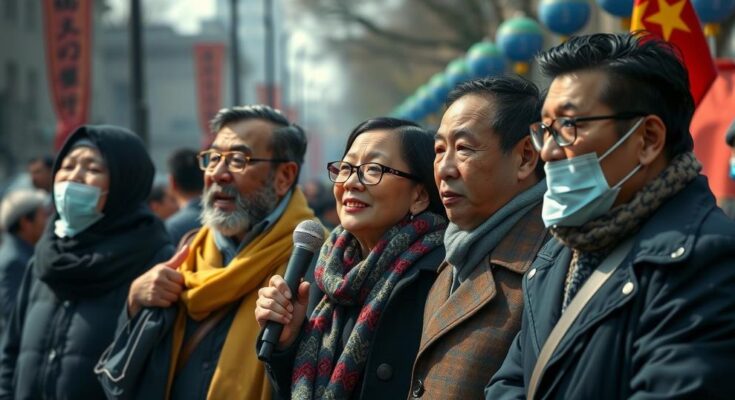Fifteen Western countries have called on China to release all arbitrarily detained Tibetans and Uyghurs and allow human rights observers to assess conditions in these regions. The appeal, delivered to the U.N. by Australia’s ambassador, emphasizes transparency and accountability. While China’s representatives criticize the statement, advocates see it as a positive development for pressing human rights issues globally.
Fifteen Western nations have united in a public statement urging China to free all Tibetans and Uyghurs they claim are arbitrarily detained. Delivered to the U.N. Human Rights Committee by Australia’s ambassador, James Larsen, the plea emphasizes the necessity for unhindered access for human rights observers in these regions. This statement elicited sharp criticism from Chinese representatives but was welcomed by advocates for Tibetan and Uyghur rights. In a powerful speech, Larsen insisted that transparency is essential for diminishing concerns, calling for independent observers to assess human rights conditions in Xinjiang and Tibet. Co-signers of this statement include Canada, Denmark, Japan, and the United States, underscoring a collective stance against China’s actions. The statement strongly demands the release of arbitrarily detained individuals and clarity regarding the status of missing family members. The U.N. has often highlighted the peaceful detention of Tibetans and Uyghurs for expressing political or religious views, citing issues like family separations, forced sterilizations, and torture. Meanwhile, the United States has characterized China’s treatment of Uyghurs as an ongoing genocide, adding urgency to international calls for accountability. In response, Chinese ambassador Fu Cong downplayed the concerns raised, pointing to what he called the “living hell” of the Gaza situation as more pressing. “The human rights situation that should gather the most attention… is undoubtedly that of Gaza,” he asserted, deflecting scrutiny from Xinjiang. Nevertheless, Tibetan and Uyghur advocates, such as Namgyal Choedup, hail the statement as a step forward, urging continued international monitoring of China. Human Rights Watch’s Maya Wang echoed these sentiments, emphasizing the importance of persistence in addressing the significant abuses denied by the Chinese government. Ilshat Hassan Kokbore of the World Uyghur Congress expressed a desire for tangible actions rather than mere transparency, stressing that urgent measures are vital to halt ongoing atrocities in China.
The recent statement by fifteen countries marks a significant moment in global advocacy for human rights, particularly concerning the plight of Uyghurs and Tibetans. Reports from various U.N. bodies suggest that individuals from these regions face severe human rights violations, often under the guise of national security. The unity among these countries reflects a collective effort to hold China accountable to international human rights standards and calls for improved transparency.
In conclusion, the collective statement by fifteen countries calling for the release of Uyghur and Tibetan detainees highlights the ongoing international concern regarding human rights abuses in China. While the Chinese government deflects criticism, advocates emphasize the need for transparency and action against systemic injustices. This moment stands as a reminder that the world is watching, and there is a collective responsibility to advocate for those whose voices are silenced.
Original Source: www.rfa.org



